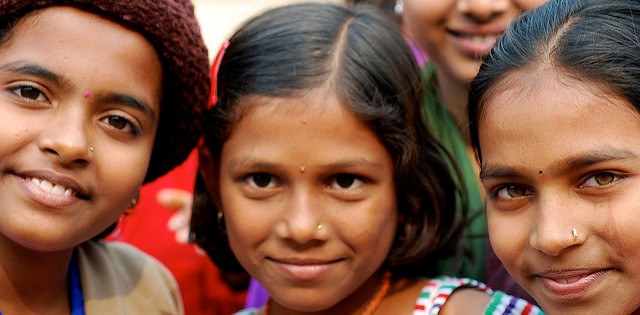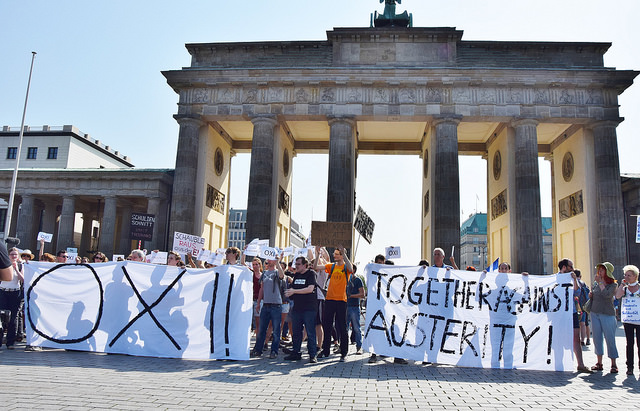By Jasmin Wiefek and Bernd Sommer
“Wrong life cannot be lived rightly”: This famous dictum by Theodor W. Adorno1 highlights the difficulty of finding a way to individually pursue a good life in a world that is characterised by inequality, exploitation and various forms of domination. However, this question has so far mainly been dealt with theoretically or as an ethical issue2. For our study, we chose a different approach: By applying Adorno’s assumption to the representatives of the current degrowth movement, we dealt with it empirically. More precisely, we sought to identify the possibilities and barriers for degrowth-oriented actors in a growth-dominated economy.
In recent years, a growing number of initiatives and enterprises has developed patterns of production and consumption beyond the growth paradigm. According to Liesen et al.3, the maximization of sales and profits is not the primary corporate goal of such “growth-neutral” companies. Instead of this, such companies pursue goals like fair payment, high quality of products and work and a production process that minimizes negative influences on people and the environment. Nonetheless, a growth of sales and profits is possible as long as it serves the corporate goals. In spite of this, these actors remain in a broader economic context, which is characterised by competitive markets and enterprises that depend on achieving revenues from the sale of goods and services. In short, actors that are trying to emancipate from the growth principle and try to act more sustainably find themselves in conflict with the social world around them4.
On the basis of interviews with 13 actors from 11 German and Austrian enterprises we specified some of the most pressing obstacles for degrowth-oriented actors, as well as their attempts to overcome these. In order to examine the question in a broader context, we also included case stories from the database of the foundation FUTURZWEI - Stiftung Zukunftsfähigkeit in our analysis.
FUTURZWEI publishes stories about projects in Germany, Switzerland and Austria, that experiment with more sustainable lifestyles and modes of production and consumption, many of them in a growth-critical manner. Our analysis shows that the main obstacles such actors face can be categorized into three subjects, namely framework conditions, personal hitches and financial concerns.
As far as general framework conditions are concerned, bureaucracy seems to be a big issue. The entrepreneurs encounter a high administrative and regulatory burden in their work, in terms of organizing financial accounting, coping with the tax system, meeting building regulations, etc. Beside these issues that more or less affect every entrepreneur, the alternative practitioners have to handle problems due to the unconventional organization and/or goals of their enterprises. For instance, one Austrian company has to struggle with the Financial Supervisory Authority of the country, because national law only permits business owners to borrow money from banks and not from private individuals as this entrepreneur did. Disputes with the authorities on issues like that are very time-consuming and legal advice is expensive.
Another restrictive framework condition is the economic context in which the actors manage their enterprises. It is not easy for the business owners to establish themselves in a competitive market. As they seek to avoid the externalisation of costs at the expense of people and the environment, their product prices are usually higher than those of conventional competitors. Consequently, they rely on a (in most cases relatively small) customer base that remains loyal to the company. In general, these actors experience the consumerist cultural framework as challenging. Interviewees mentioned that many people are sceptical of their goals and actions. They just get very limited support from policy decision makers and society. Therefore, it is exhausting for them to permanently “swim against the current”.
As far as personal hitches are concerned, the protagonists claim to be overwhelmed by e.g. a lack of personal knowledge and experience. Quite often the entrepreneurs act in a field that is absolutely new to them. The reasons for this are quite diverse: Some enterprises are the result of a civil initiative that did not start off with the aim of setting up a business. During the process, however, the activists realized that this was ultimately necessary in order to achieve their goals. A good example is a cooperatively organised shop for local supply of day-to-day goods.
Other protagonists claim that they have started their business either to prove that an ethical production is possible, or just because no one else did what they considered necessary. Consequently, actors repeatedly have to go through a learning process that includes wrong investment decisions and the dependency on time-consuming capital raising processes. The protagonists of the initiatives often end up working unpaid overtime due to problems like insufficient financial resources. In some cases, this even leads to physical fatigue.
Even while starting a degrowth-oriented business, many of the interviewed entrepreneurs lack financial resources, as most banks are sceptical about investing in such unusual businesses. So alternative practitioners have to either rely on their private savings or to find individuals that are willing to invest money for idealistic reasons. In addition, the costs for licenses and patents are a major hurdle the actors have to deal with. Quite often it takes a lot of time until they are able to cover living expenses through working in their company.
However, in our explorative study we could also identify a number of resources the protagonists can rely on. The factors mentioned by the interviewees to be crucial for the success of their enterprises can be clustered into two groups: The personal skills and characteristics of the people working in the initiatives (incorporated cultural capital), and the properties of the projects themselves, as well as the context the projects are set in. With respect to the obstacles mentioned above, a particular personal characteristic must be highlighted: It is the actors' considerable persistence and passion on their work. Even though we did not ask for the motivations for running the businesses, the idea to make the world a better place and an intrinsic motivation was expressed quite often. This seems to be an important driver to keep running against all odds. It also raises the question, up to which point opposition is fruitful or even necessary for the initiatives, because it forces them to sharpen their position, define their goals and find strategies to reach their aims.
And there is yet another outstanding point which is an important factor for success: Most actors strongly rely on their social networks (social capital). As reflected by the interviewees, help comes from family members, friends and other like-minded people; cooperation with other entrepreneurs and initiatives is vital. Although social capital cannot completely substitute economic capital, working together can help to compensate missing skills and a lack of knowledge, and therefore facilitates the early development of such enterprises.
At the conference, this study will be discussed at the event "Social actors as agent of change". It was carried out on behalf of the German Federal Environmental Agency under the Environmental Research Plan – funding reference number 3713 11 102– and is funded by the Federal Government of Germany.
> Comment on this article on the German blog "Postwachstum"---

In recent years, the debate around universal basic income has gained much popularity and coverage. The many successful models of basic income, both universal and targeted such as Alaska, Iran and Brazil (Bolsa ) along with an active movement in many European countries to adopt pilot experiments, made researchers and social workers in India enthusiastic to try out similar studies in the country ...

By Nina Treu According to recent calculations by the Macroeconomic Policy Institute the Euro-crisis has cost Greece almost a quarter of its GDP. This is the biggest ever recorded contraction of an economy in times of peace. It would be cynical to consider this an example for degrowth (or postgrowth) in Europe. This is certainly not the case. On the contrary, the mission statement of the degrow...
By Ashish Kothari As it becomes abundantly clear that humanity as a whole has crossed the ecological limits of the earth, and that countries like China and India are fast joining the already-industrialised nations in stressing the planet even more, the search for radical alternatives is humanity’s most urgent quest. There is no doubt that, as [...]